|
Fund independent journalism with 30% off for your first year
|
|
|

|
 |
|
|
First Thing: Trump and Musk joust in astonishing social media duel
|
|
|
The world’s richest man called for the US president’s impeachment, and in return Trump threatened to scrap subsidies for Musk’s companies. Plus, a university paid private investigators to snoop on campus activists
|
|
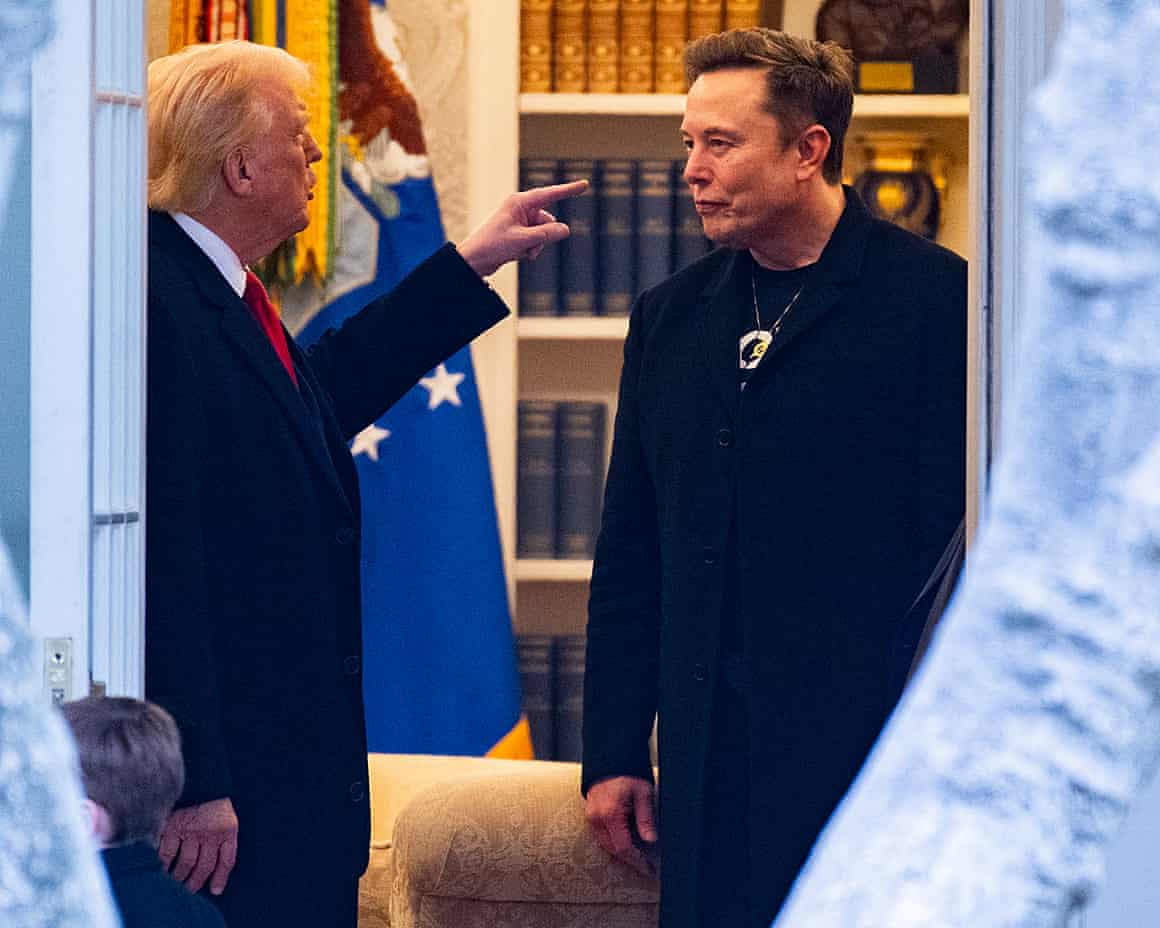 |
 Donald Trump with Elon Musk in March. Photograph: Roberto Schmidt/AFP/Getty Images
|
|
Clea Skopeliti
|
|
|
Good morning.
Elon Musk has called for Donald Trump’s impeachment and in effect claimed the president was part of Jeffrey Epstein’s alleged child sexual abuse ring in an extraordinary social media blow-up between the former allies on Thursday.
Trump did not hold back either, threatening to end federal contracts and tax subsidies for the billionaire’s companies as the feud that had been brewing flared up on their respective social media platforms.
In the saga’s most explosive movement, Musk tweeted: “Time to drop the really big bomb: Donald Trump is in the Epstein files. That is the real reason they have not been made public. Have a nice day, DJT!” The post followed Trump threatening to cut subsidies for Musk’s companies as it would save “billions”.
-
What is the origin of the feud? Tensions have been mounting for weeks over a Republican spending bill that Musk has been critical of.
-
How is it affecting Musk’s bottom line? Tesla’s shares plunged by about 14.2% on Thursday at market close after the pair traded barbs.
Rubio imposes sanctions on four ICC judges for ‘targeting’ US and Israel
|
|
|
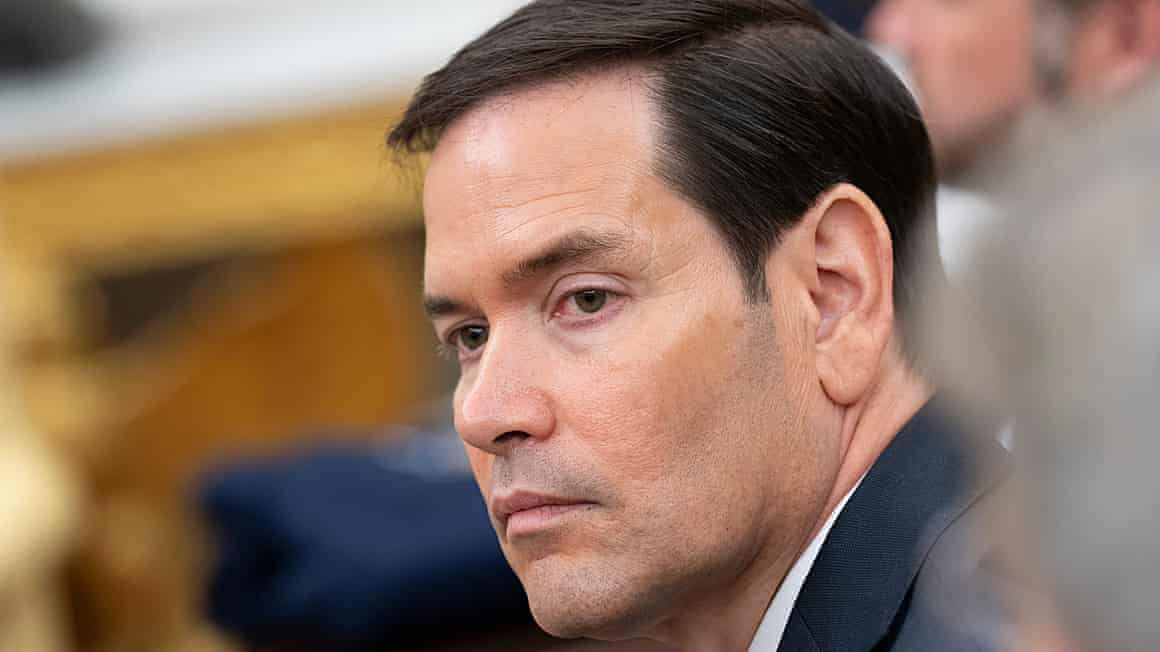 |
 The US secretary of state, Marco Rubio, accused the four judges of being ‘actively engaged in … targeting America or our close ally Israel.’ Photograph: Chris Kleponis/EPA
|
|
|
|
The US is imposing sanctions on four judges from the international criminal court (ICC) for what it has termed its “illegitimate actions” against the United States and Israel, the secretary of state has announced.
Marco Rubio announced the sanctions against Solomy Balungi Bossa of Uganda, Luz del Carmen Ibáñez Carranza of Peru, Reine Adélaïde Sophie Alapini-Gansou of Benin and Beti Hohler of Slovenia on Thursday after Donald Trump instructed cabinet officials to devise sanctions against the court.
-
Why were these judges targeted? Two of the judges authorized the arrest warrants against the Israeli prime minister, Benjamin Netanyahu, and the former defense minister Yoav Gallant, while the other pair authorized an ICC investigation into abuses by US personnel in Afghanistan.
-
Has the US targeted others before? Yes – it sanctioned the ICC’s chief prosecutor, Karim Khan, after he pursued arrest warrants for Netanyahu and Gallant. As a result, Khan has lost access to his email and had his bank accounts frozen, the Associated Press reported.
Judge blocks Trump’s ban on Harvard’s international students from entering the US
|
|
|
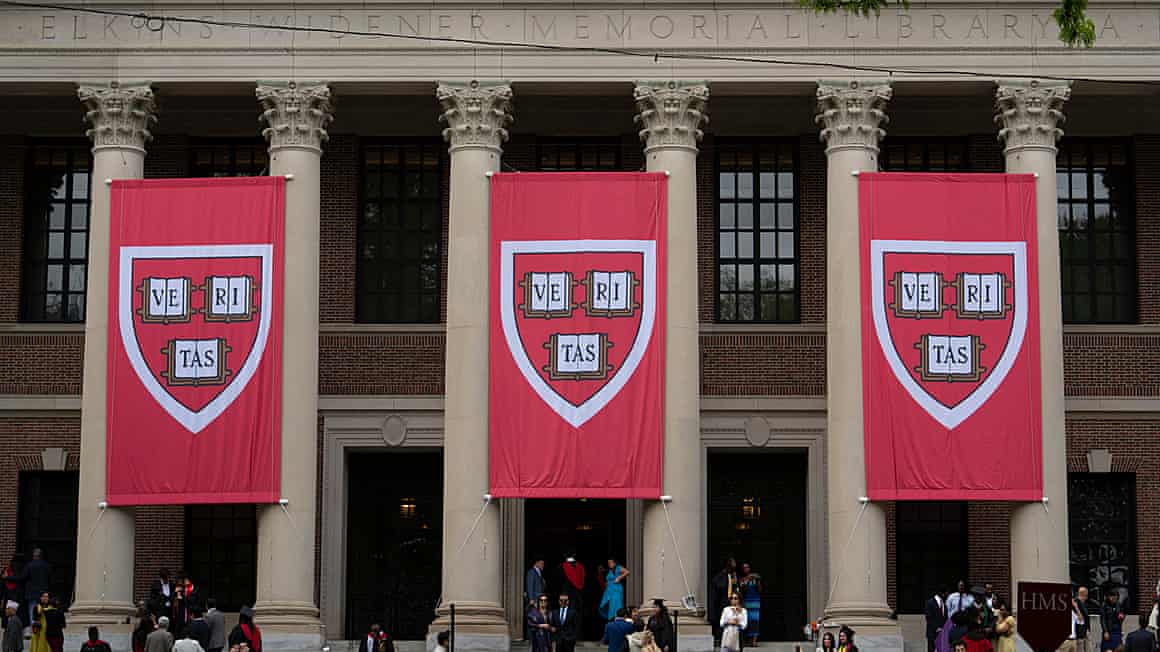 |
 The Widener library during Harvard’s 374th commencement in Cambridge, Massachusetts, last week. Photograph: Rick Friedman/AFP/Getty Images
|
|
|
|
A district judge in Boston has blocked the Trump administration’s ban on Harvard’s foreign students from entering the United States after the university argued it had violated federal law.
The Ivy League school argued that the administration failed to back up the president’s claims that the students posed a threat to national security and asked Judge Allison Burroughs to block the ban.
The filing also argued that the administration’s national security argument was unsound as, under the ban, the same people were able to still enter the country – just not attend Harvard.
The development came while hundreds of thousands of Chinese students in the US struggle with an uncertain future after the state department said last week that it would “aggressively” revoke visas for Chinese students.
-
Why did Trump ban Harvard from accepting international students? The White House spokesperson Abigail Jackson has called Harvard “a hotbed of anti-American, antisemitic, pro-terrorist agitators” – claims the school denies. Harvard argues Trump is angry because it has refused to give in to the administration’s demands to shape the school’s governance, curriculum and ideology of staff and students alike.
In other news …
|
|
|
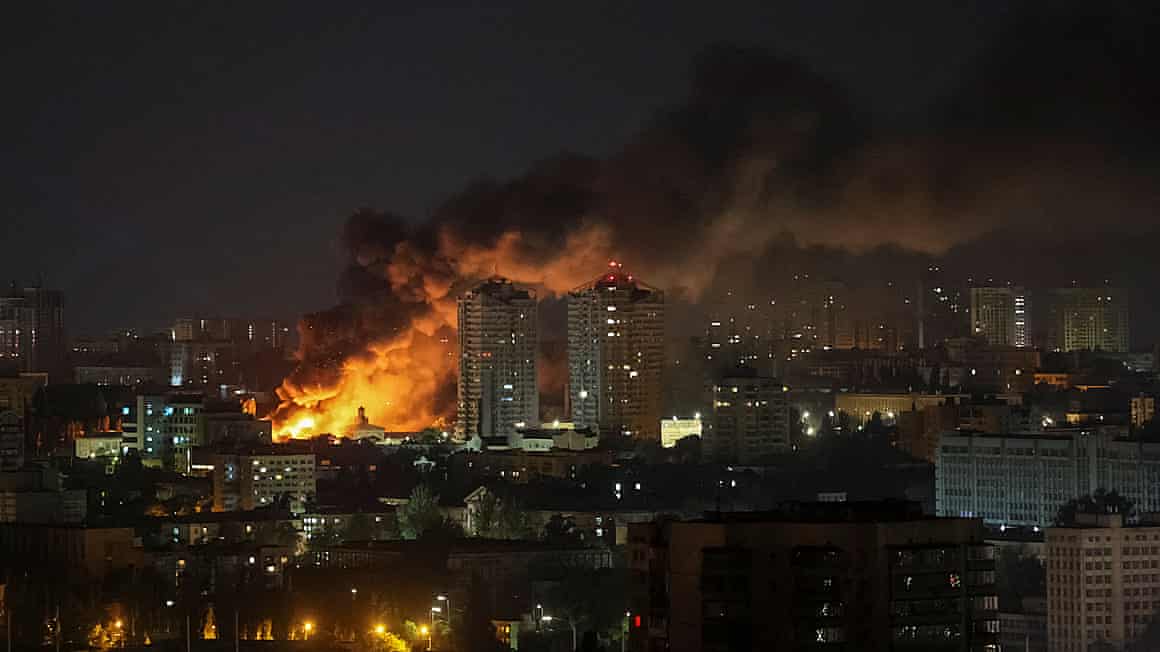 |
 Fire and smoke in Kyiv after Russian drone and missile strikes. Photograph: Gleb Garanich/Reuters
|
|
|
Stat of the day: University of Michigan paid undercover investigators at least $800,000 to surveil students involved in Gaza protests
|
|
|
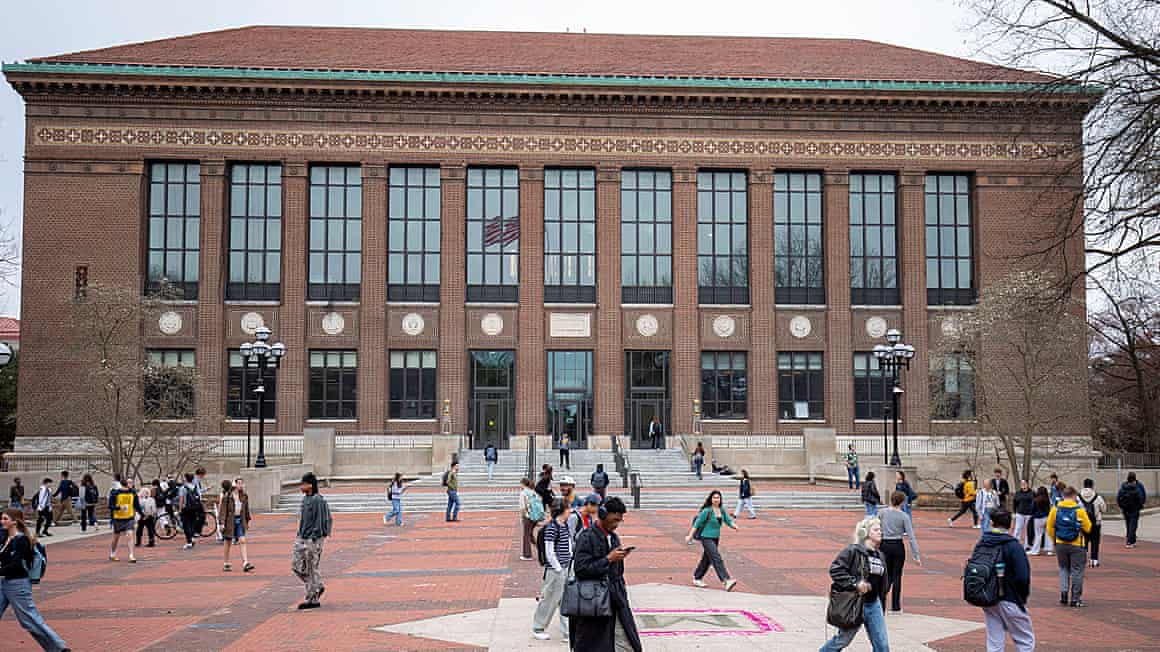 |
 University of Michigan students on campus in Ann Arbor. In a statement, the university did not deny the surveillance. Photograph: Bill Pugliano/Getty Images
|
|
|
|
The University of Michigan is using private, undercover investigators to surveil pro-Palestinian campus groups, the Guardian can reveal, with the records from the school’s governing body showing that the university paid at least $800,000 between June 2023 and September 2024 to Ameri-Shield, the parent company of the private security group City Shield. Five students who have been followed, recorded or eavesdropped on said it appeared largely to be an intimidation tactic.
Don’t miss this: Death is not the end! – how posthumanism is having a movie moment
|
|
|
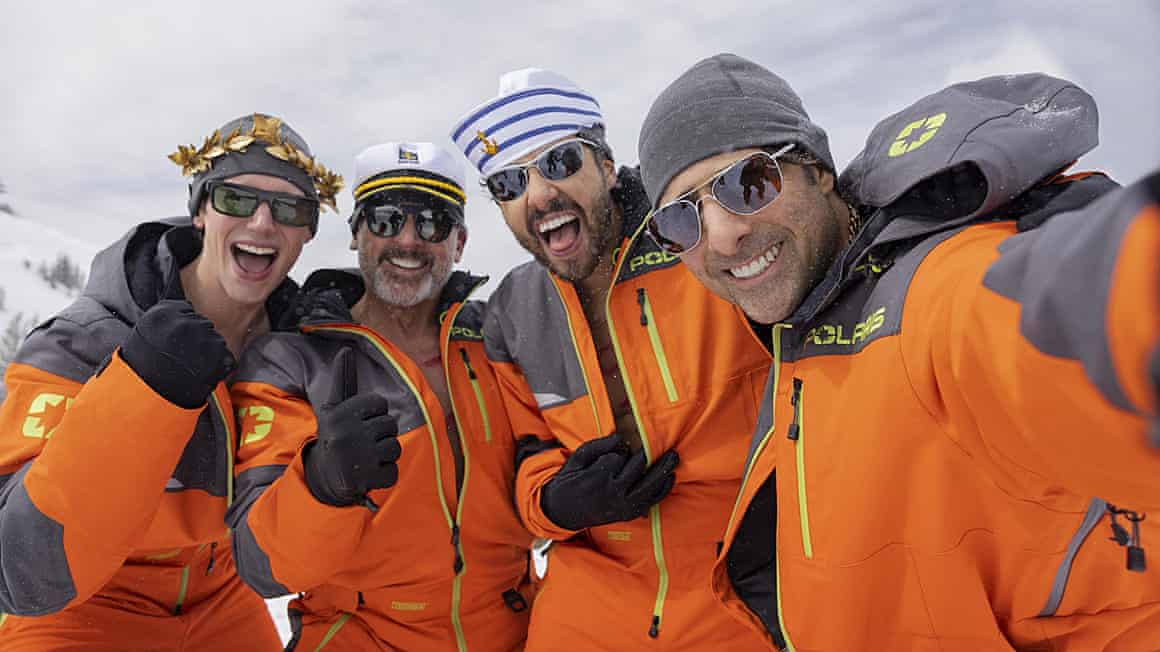 |
 Dead men talking … Cory Michael Smith, Steve Carell, Ramy Youssef and Jason Schwartzman in Mountainhead. Photograph: HBO/2025 Home Box Office, Inc. All Rights Reserved.
|
|
|
|
Disneyland recently announced an animatronic recreation of Walt Disney, intended to give visitors a sense of “what it would have been like to be in Walt’s presence”, earning a rebuke from his granddaughter Joanna Miller. Long a fascination for cinema, posthumanism is starting to feel worryingly current, writes Stuart Heritage, after experts this year voiced concerns about Neuralink, Elon Musk’s brain implant company.
Climate check: The Swiss village buried by a glacier collapse
|
|
|
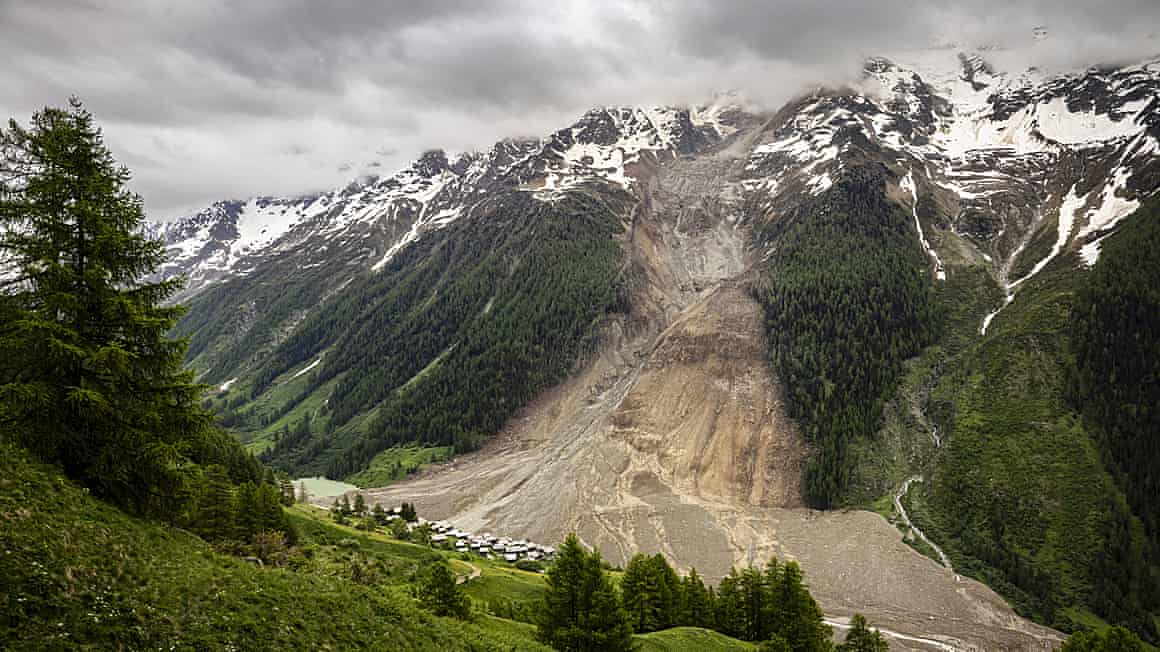 |
 A glacier collapsed above the village of Blatten on 28 May, triggering a landslide. Photograph: Michael Buholzer/AP
|
|
|
|
When a Swiss village was wiped out in seconds after a glacier collapsed above it on 28 May, attention turned to why it happened – and how global heating will make such events more common. This podcast tells the shocking story.
Last Thing: Spanish police’s plea for respect backfires over photo of old women alfresco
|
|
|
|
|
|
|
|
Police in a small Andalucían town have unleashed a storm after they chose to illustrate a call for people not to disturb their neighbors late at night with … a picture of six older women sitting outside. The move violated the silent Spanish injunction that forbids any attempts to alter the habits of the country’s cherished older people – particularly given the long tradition of the outdoor sit-down chat as the heat of the day gives way to the cool of the evening, known as tomando el fresco, or taking the cool air. The social media response was full of force and sarcasm. One typical example: “We need to put an end to this serious issue – no more impunity for grannies who sit out to enjoy the fresh air.”
Sign up
|
|
|
|
|
|
First Thing is delivered to thousands of inboxes every weekday. If you’re not already signed up, subscribe now.
Get in touch
If you have any questions or comments about any of our newsletters please email newsletters@theguardian.com
|
|
| |
|
Betsy Reed
|
|
Editor, Guardian US
|
|
|

|
|
|
I hope you appreciated this newsletter. Before you move on, I wanted to ask whether you could support the Guardian’s journalism as we face the unprecedented challenges of covering the second Trump administration.
As Trump himself observed: “The first term, everybody was fighting me. In this term, everybody wants to be my friend.”
He’s not entirely wrong. All around us, media organizations have begun to capitulate. First, two news outlets pulled election endorsements at the behest of their billionaire owners. Next, prominent reporters bent the knee at Mar-a-Lago. And then a major network – ABC News – rolled over in response to Trump’s legal challenges and agreed to a $16m million settlement in his favor.
The Guardian is clear: we have no interest in being Donald Trump’s – or any politician’s – friend. Our allegiance as independent journalists is not to those in power but to the public.
How are we able to stand firm in the face of intimidation and threats? As journalists say: follow the money. The Guardian has neither a self-interested billionaire owner nor profit-seeking corporate henchmen pressuring us to appease the rich and powerful. We are funded by our readers and owned by the Scott Trust – whose only financial obligation is to preserve our journalistic mission in perpetuity.
With the new administration boasting about its desire to punish journalists, and Trump and his allies already pursuing lawsuits against newspapers whose stories they don’t like, it has never been more urgent, or more perilous, to pursue fair, accurate reporting. Can you support the Guardian today?
We value whatever you can spare, but a recurring contribution makes the most impact, enabling greater investment in our most crucial, fearless journalism. As our thanks to you, we can offer you some great benefits. We’ve made it very quick to set up, so we hope you’ll consider it.
|
|
However you choose to support us: thank you for helping protect the free press. Whatever happens in the coming months and years, you can rely on the Guardian never to bow down to power, nor back down from truth.
|
|
|
|
|
|
| |
|

|
Manage your emails | Unsubscribe | Trouble viewing?
|
| You are receiving this email because you are a subscriber to First Thing: the US morning briefing. Guardian News & Media Limited - a member of Guardian Media Group PLC. Registered Office: Kings Place, 90 York Way, London, N1 9GU. Registered in England No. 908396 |
|
|
|
|
|